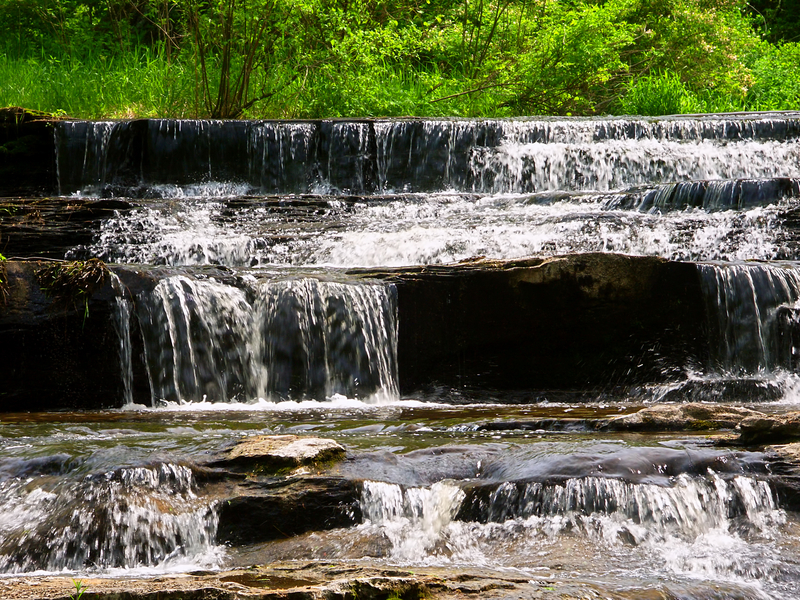Alaska Civil 24 PDH Discount Package 1
Low Impact Development Design Strategies (C07-006)
Groundwater Hydrology (C09-002)
General Principles of Engineering Ethics (LE2-016)

This online engineering PDH course provides guidance on the removal methods of deteriorated concrete structures as well as guidance on materials and methods to repair or rehabilitate the structure. Guidance is also included on maintenance of concrete. A basic understanding of underlying causes of concrete deficiencies is essential to perform meaningful successful repairs.
This 6 PDH online course is applicable to civil, geotechnical and structural engineers, as well as design and construction personnel working on construction projects involving evaluation and repair of concrete structures.
This PE continuing education course is intended to provide you with the following specific knowledge and skills:
- Familiarization with concrete removal methods and preparation for repair
- Understanding the types of materials and methods for rehabilitation
- Understanding how to maintain concrete structures following repair
In this professional engineering CEU course, you need to review only Chapters 5, 6 and 7 of the US Corps of Engineers Publication EM 1110-2-2002, "Evaluation and Repair of Concrete Structures".
Upon successful completion of the quiz, print your Certificate of Completion instantly. (Note: if you are paying by check or money order, you will be able to print it after we receive your payment.) For your convenience, we will also email it to you. Please note that you can log in to your account at any time to access and print your Certificate of Completion.

This online engineering PDH course describes the wide array of impact reduction and site design techniques that allow engineers and planners to create stormwater control mechanisms that function in a manner similar to that of natural control mechanisms.
The low-impact development (LID) approach combines a hydrologically functional site design with pollution prevention measures to compensate for land development impacts on hydrology and water quality. The primary goal of Low Impact Development methods is to mimic the predevelopment site hydrology by using site design techniques that store, infiltrate, evaporate, and detain runoff. Use of these techniques helps to reduce off-site runoff and ensure adequate groundwater recharge. Since every aspect of site development affects the hydrologic response of the site, LID control techniques focus mainly on site hydrology.
This 7 PDH online course is intended for civil and environmental engineers and planners as well as construction professionals who are interested in learning about low impact development design techniques and their applications.
This PE continuing education course is intended to provide you with the following specific knowledge and skills:
- Understanding low-impact development goals
- Understanding low-impact development site planning
- Understanding low-impact development hydrologic analysis
- Understanding low-impact development integrated management
- Understanding erosion and sediment control considerations for low-impact development
In this professional engineering CEU course, you need to review the course document titled "Low-Impact Development Design Strategies" prepared by the Prince George's County
Upon successful completion of the quiz, print your Certificate of Completion instantly. (Note: if you are paying by check or money order, you will be able to print it after we receive your payment.) For your convenience, we will also email it to you. Please note that you can log in to your account at any time to access and print your Certificate of Completion.

This online engineering PDH course presents an overview of the occurrence and movement of groundwater. Procedures for planning and managing a site characterization and modeling study are then presented. This is followed by chapters addressing the technical aspects of field investigative methods and computer modeling. A final chapter discussing the interaction of groundwater and surface water is then presented.
Since it is not possible to provide specific instructions and/or specific procedures that are universally applicable to every situation that may be encountered, this course emphasizes the use of sound judgment and the development of a good understanding of basic groundwater concepts rather than providing specific guidelines.
This 9 PDH online course is applicable to civil and environmental engineers, as well as design and construction personnel involved with the study and analysis of groundwater flow.
This PE continuing education course is intended to provide you with the following specific knowledge and skills:
- Occurrence and movement of groundwater
- Planning a groundwater investigation and modeling study
- Field investigative methods
- Computer modeling of groundwater flow
- Interaction between surface water and groundwater
In this professional engineering CEU course, you need to review the US Corps of Engineers Publication EM 1110-2-1421, "Groundwater Hydrology".
Upon successful completion of the quiz, print your Certificate of Completion instantly. (Note: if you are paying by check or money order, you will be able to print it after we receive your payment.) For your convenience, we will also email it to you. Please note that you can log in to your account at any time to access and print your Certificate of Completion.

This online engineering PDH course presents the principles of engineering ethics that every engineer is expected to live by when practicing their profession.
Engineering ethics is (1) the study of moral issues and decisions confronting individuals and organizations involved in engineering and (2) the study of related questions about moral conduct, character, ideals and relationships of peoples and organizations involved in technological development (Martin and Schinzinger, Ethics in Engineering).
This course describes the fundamental legal concepts with which very engineer should be familiar. It also presents unique disciplinary case studies selected from across the nation, as well as hypothetical ethical challenges that demonstrate how difficult it can be to apply the code of ethics for engineers.
This 2 PDH online course is applicable to all professional engineers who are either required to fulfill 2 PDH in engineering ethics or are interested in broadening their understanding of what it means to practice and uphold the honor and integrity of their engineering profession while holding the utmost safety, health, and welfare of the public.
This PE continuing education course is intended to provide you with the following specific knowledge and skills:
- Understanding the common definition of ethics regarding engineering
- Learning about the important principles of the engineer’s professional responsibility
- Learning the do’s and don’ts through several ethical and disciplinary cases
- Understanding what it means to practise and uphold the honor and integrity of the engineering profession
Upon successful completion of the quiz, print your Certificate of Completion instantly. (Note: if you are paying by check or money order, you will be able to print it after we receive your payment.) For your convenience, we will also email it to you. Please note that you can log in to your account at any time to access and print your Certificate of Completion.